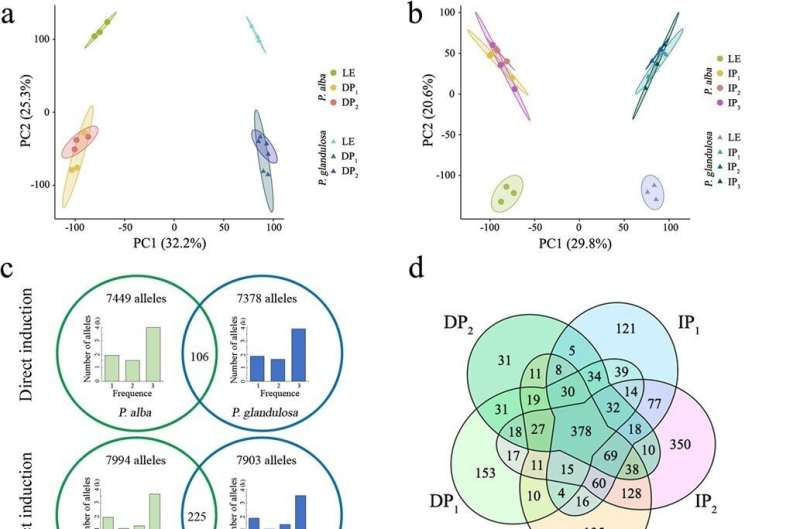This article has been reviewed according to Science X's editorial process and policies. Editors have highlighted the following attributes while ensuring the content's credibility:
fact-checked
peer-reviewed publication
proofread
Epigenetic insights: How hybrid poplar regenerates shoots

Understanding plant regeneration at the molecular level is pivotal for advancements in genetic transformation and genome editing. Previous studies have underscored the importance of DNA methylation in model organisms, yet the specific mechanisms in woody plants like hybrid poplar remain largely unexplored. Due to these challenges, it is essential to conduct in-depth research on the regeneration mechanisms of trees.
The State Key Laboratory of Tree Genetics and Breeding at Nanjing Forestry University led a new study, published in Horticulture Research on January 24, 2024. This research delved into allele-specific DNA methylation and gene expression during shoot organogenesis in hybrid poplar tissue culture, revealing significant epigenetic dynamics.
Utilizing an inter-species hybrid poplar (Populus alba × P. glandulosa cv. 84 K), the research team meticulously studied the DNA methylation landscape during de novo shoot organogenesis. They discovered a marked decrease in genome-wide DNA methylation levels during both direct and indirect shoot regeneration phases.
Notably, the study identified that non-expressed genes were hypermethylated compared to expressed genes, with 75% of genes exhibiting a negative correlation between DNA methylation in the CG context and gene expression. The analysis also underscored the stability of allele-specific DNA methylation regions (ASMRs) and their limited shift during the regeneration process.
These findings suggest that epigenetic regulation in hybrid poplar is relatively independent within its two subgenomes, influenced by cis-acting genomic and epigenomic variations.
Dr. Liang-Jiao Xue, the lead researcher, remarked, "Our study uncovers the significant role of allele-specific DNA methylation in regulating gene expression during plant regeneration. This insight is crucial for improving tissue culture techniques and genetic transformation efficiency in woody plants."
The findings from this study have profound implications for forestry and agriculture. By elucidating the epigenetic mechanisms in hybrid poplar, researchers can enhance tissue culture methods, leading to more efficient breeding and genetic improvement of trees.
This research opens up new possibilities for leveraging epigenetic modifications to improve regeneration capabilities in recalcitrant tree species, ultimately contributing to sustainable forestry practices and increased biomass production.
More information: Ying Guo et al, Allele-specific DNA methylation and gene expression during shoot organogenesis in tissue culture of hybrid poplar, Horticulture Research (2024). DOI: 10.1093/hr/uhae027
Journal information: Horticulture Research
Provided by TranSpread



















